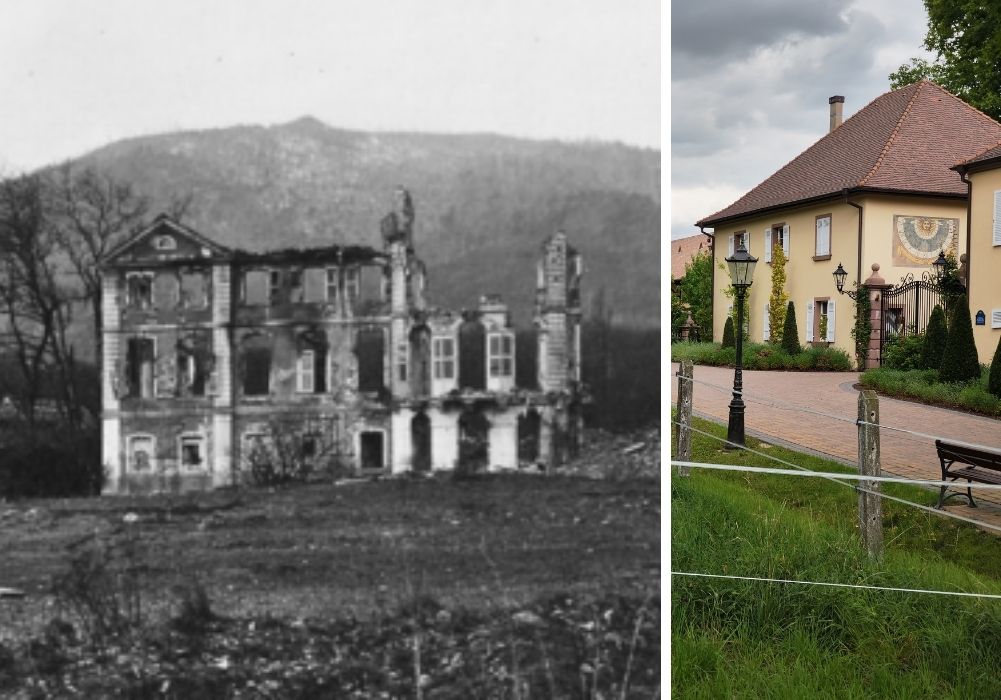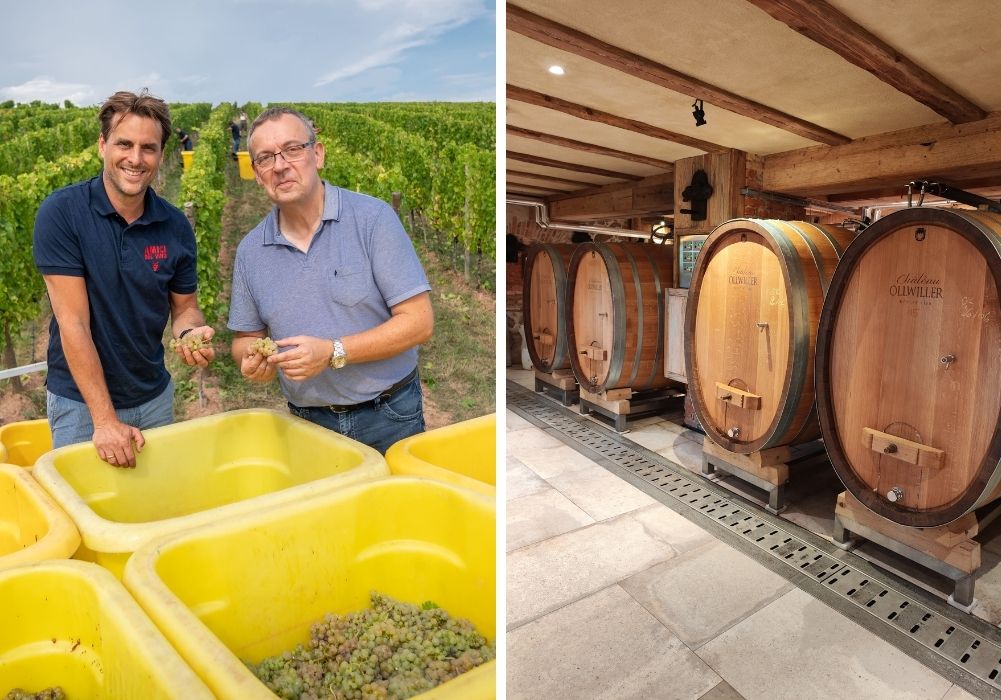THE ESTATE/ CHÂTEAU OLLWILLER
HISTORY
Ollwiller Castle belonged to the Count of Ferrette. In 1230, the Waldners built a castle there to serve the Bishop of Strasbourg. After the Revolution, Jacques-Gabriel Gros, a textile manufacturing engineer in Wesserling, took over the 106-hectare estate. He turned it into a model rural agricultural and wine-growing operation. During the First World War, the château was located near the front line. Destroyed by several bombings between 1915 and 1917, only a section of wall and ruins among shell holes remain. After the war, Aimé Gros' son rebuilt the château and began to develop agriculture on the estate.
In 1941, during the Second World War, the Château was expropriated and transformed into a training and instruction centre for the Hitler Youth. It then housed a Wehrmacht field hospital and finally, during the last months of the war, became a centre for the French anti-aircraft forces.
Château Ollwiller is located in the middle of a terroir that obtained its classification when the Grands Crus were first defined in 1983. Facing south-southeast, it enjoys long hours of sunshine from sunrise to sunset, sheltered from the prevailing winds. The terroir is composed of marl and sandstone laid on a limestone base 10-15 metres deep. The estate is one of only two châteaux in Alsace authorised to sell its wine under the ‘Château’ designation.

The exposure and geology of the estate produce wines of exceptional quality, with good liveliness, fruitiness, beautiful aromatics and a minerality characteristic of Ollwiller. It is this château that gave its name to the Ollwiller Grand Cru.
In the 1950s, Jacques-Henry Gros, who founded La Cave du Vieil Armand, decided with his brother to move the estate towards modern viticulture. Both demonstrated ecological awareness and a sensitivity to organic farming methods in the vineyard: ‘I would like to reduce the use of pesticides and give new life to the bare land through grass cover,’ said J-H Gros.
It is in this spirit that the estate's new owners (since 2020), the Mack family, want to cultivate the 27 hectares of vines.
With a wealth of experience and awards to his name, Mathieu Kauffmann was chosen to take charge of the Château Ollwiller vineyard. Trained at a leading Champagne house and a German wine estate for several years, and named Winemaker of the Year by Falstatt Magazine in 2019 and by Gault&Millau Germany in 2020, the oenologist aims to cultivate the Château's vines using biodynamic methods in order to produce wines that best reflect the minerality of this terroir.

